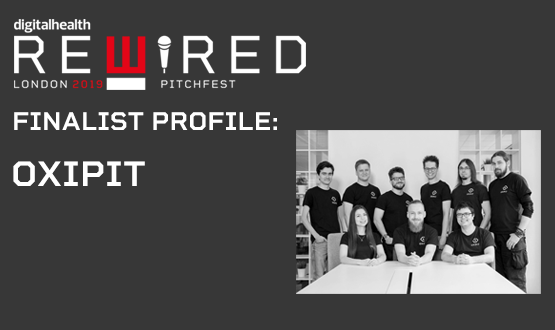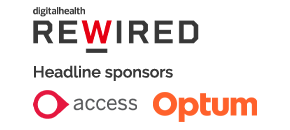Pitchfest 2019 finalist profile: Oxipit
With backgrounds in data science and theoretical physics, the founding team at Oxipit wanted to use their expertise to help alleviate staffing pressures in the NHS and created an artificial intelligence tool for chest x-rays. The start up was one of the 16 finalists in this year’s Digital Health Rewired Pitchfest.

With backgrounds in data science and theoretical physics, the founding team at Oxipit wanted to use their expertise to help alleviate staffing pressures in the NHS and created an artificial intelligence tool for chest x-rays. The start up was one of the 16 finalists in this year’s Digital Health Rewired Pitchfest so we sat down with Jogundas Armaitis, the company’s co-founder, to find out more.
Could you tell us, in your own words, about your innovation and what it does?
Oxipit is applying artificial intelligence to medical imaging. We have developed a tool that automates reporting on chest X-ray images, which is the most frequent medical imaging modality.
Oxipit stands out from the competition by covering virtually all pathologies and generating reports as if written by a radiologist.
What gave you the idea for your product?
Before starting out, we interviewed more than a dozen medical doctors specialising in various fields.
We then came up with three prototypes before asking for feedback once again, before deciding to concentrate on this particular product.
How have you got to where you are now?
We have a large founding team, five people in total. Most of the founders have known each other since school, for more than 10 years.
Some of us worked in a biometrics company and after releasing a new version of the product line, it seemed to be a good time to do something in a different area.
At the same time, the team won several international data science competitions. We could have become a data science research company, but building our own product seemed to be much more attractive.
Why did you decide to enter the health start-up space?
On a personal note, I used to work as a research scientist in theoretical physics, and I wanted to switch to something with more immediate impact.
Besides that, there seems to be a consensus that healthcare systems are going to come under severe stress in the near future due to an aging population and shrinking workforce, especially in Europe, which includes the UK.
We believe that healthcare is really important, so we are trying to contribute to alleviating these problems.
Have you faced any barriers?
There are several barriers that are somewhat specific to healthcare.
For example, software like ours cannot avoid dealing with patient data. This means that solutions like cloud computing that are considered to be best practice in other industries, are not always acceptable in healthcare.
Another one is regulatory environment, software that is being used in the process of diagnosing and treating patients, is regulated under the umbrella of ‘other medical devices’.
There is significant overhead to developing such software, for example a quality management system has to be created and certified.
We take questions around data protection and regulations very seriously, which means that we are forced to move slower and spend more resources than companies operating in other industries.
Why did you decide to enter the Digital Health Rewired Pitchfest?
It looked like a good first step in the UK market.
How did you find the experience?
I liked it very much. It was well organised and interesting.
Besides attracting quite a bit of attention from several healthcare institutions, it was also a pleasure to meet the other start-ups.
Looking to the future, what do you hope your product will achieve and what’s the next step in achieving that goal?
At the moment we have started working with the first commercial customers, and we are looking for more early adopters, especially in the UK market.
To that end, we are in talks with several healthcare institutions here. One NHS hospital is already evaluating our product and two others are testing it.
What advice would you give to someone looking to enter the health start-up space?
Healthcare is a complicated business, so having a wide range of expertise in the founding team certainly helps.
I think the Oxipit story is just getting started, and I hope to learn a lot more in the coming years.
The Digital Health Rewired Pitchfest competition gives innovators from across health and social care the chance to pitch their idea to sector leaders. Over 70 start-ups applied to take part in the 2019 event, sponsored by Silver Buck, with the final taking place at Digital Health Rewired on 26 March.
Want to pitch your start-up or idea to NHS IT leaders and investors? Entries for Rewired Pitchfest 2020 are now open; you can apply here.



